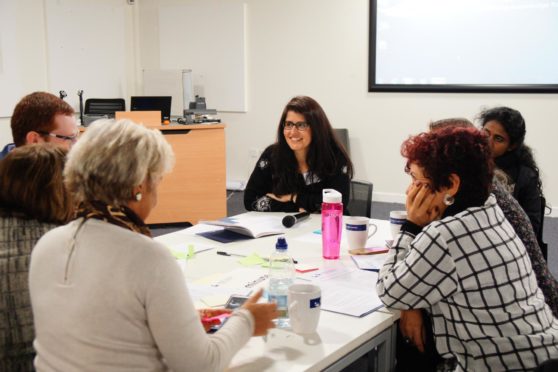Lessons learned from the streets of Brazil could help tackle Scottish youth homelessness caused by the pandemic, a Dundee expert has said.
Dr Andrea Rodriguez, from Dundee University’s School of Dentistry, has picked the brains of those involved in tackling the issue in the metropolises of Rio de Janeiro and Fortaleza.
She believes improving access to and integrating dental, health and social care services could improve the lives of people aged 16 to 25.
Currently, one third of homelessness applications in Scotland come from people in that age bracket.
The number is expected to rise significantly because of Covid-19 due to domestic tensions and a lack of employment opportunities.
Dr Rodriguez said: “Covid-19 is likely to see an increase in this, according to partners we have worked with.
“This could be due to an intensification of conflicts with family members or increased levels of domestic violence.
“For those young people living in supported accommodation, social isolation during lockdown may have increased anxiety levels or alcohol intake, while job opportunities have also become scarce, increasing chances of eviction for those in informal rental agreements.”
The eight-month knowledge exchange project led by Dr Rodriguez was funded by the Scottish Universities Insight Institute.
It centred on three workshop events and seven youth consultations in Dundee and Glasgow. These involved 45 national and international services, and more than 120 delegates, including 44 young people.
The project, completed last year, brought together experts from across Dundee University and academic and non-academic partners in Scotland, England, Wales, Norway and South America.
Partners from Brazil and Scotland travelled between the two countries to witness the work undertaken to help and listen to young people affected by homelessness.
Dr Rodriguez added: “This is a complex social problem that we all need to address.
“Scotland has one of the best homelessness legislations in Europe and Brazil has an extraordinary methodology based in popular education to address these issues.
“Both countries have practitioners and organisations strongly committed to tackling homelessness and we both have a lot to learn from each other.
“While the scenario in Brazil may be more critical, the way agencies work together there could benefit those experiencing homelessness in Scotland.”
A detailed framework has been developed by Dr Rodriguez and Professor Ruth Freeman. It is hoped it will help to inform government policy and practice in tackling homelessness in Scotland and beyond.
An accompanying documentary on the project has also been produced in English, Portuguese and Spanish.
The recommendations have been welcomed A Way Home Scotland, a national coalition of individuals, organisations and authorities aimed at ending youth homelessness.










